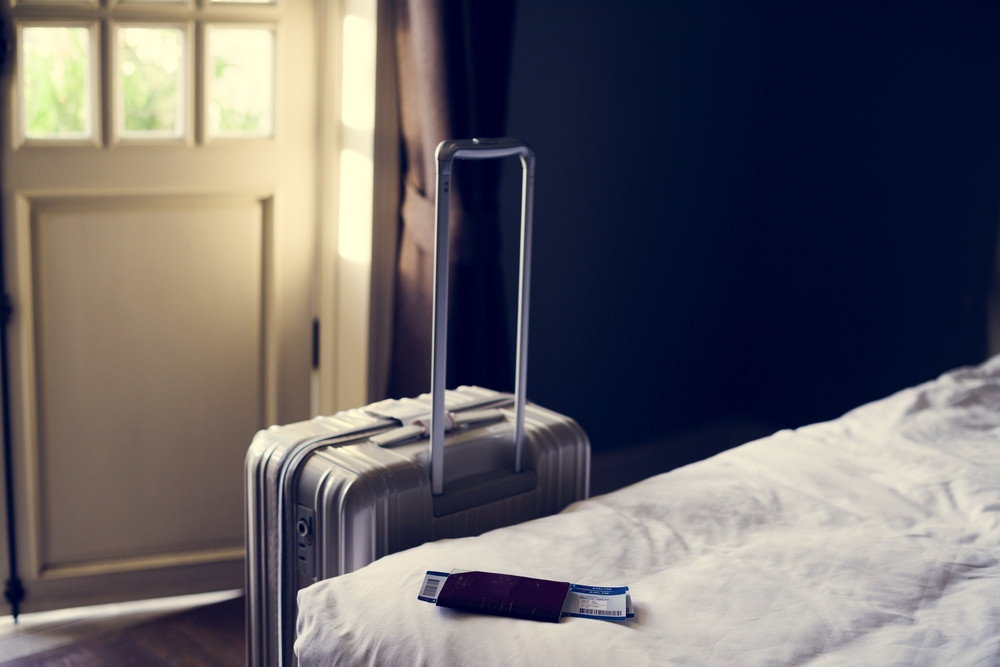Popular Reads
Top Results
Can't find what you're looking for?
View all search resultsPopular Reads
Top Results
Can't find what you're looking for?
View all search resultsTo travel or not to travel: What marketers should do amid COVID-19 pandemic
The COVID-19 pandemic has posed different challenges for travel marketers.
Change text size
Gift Premium Articles
to Anyone
T
he ongoing COVID-19 pandemic has devastated various industries, including tourism, as numerous countries still implement international travel bans.
Indonesia’s travel industry was predicted to take at least one year to recover.
Despite the government’s efforts to revive the industry, such as allocating Rp 14.4 trillion (US$1,016 million) in November and encouraging domestic travel, its future depends on the country’s ability to contain the spread of COVID-19.
The health crisis has posed major challenges for the government, vacationers as well as travel marketers.
Stella Berry, the regional business director of global advertising platform Adludio, said the pandemic had taken the industry and its players on a roller-coaster ride of uncertainty. She mentioned Singapore, which has implemented a travel corridor for several countries for official trips and essential business. According to bbc.com, the country planned to extend the initiative to Hong Kong in November but it was postponed as 43 new infections were found in Hong Kong that month.
“I just don’t think that you can actually make any long-term plans at the moment; it’s really taking one day at a time,” Berry told The Jakarta Post on Nov. 27. “I think for marketers, it’s really about trying to understand consumers [about] what they want, what they need and what they’re going to be expecting from the industry.”
Berry also spoke about the risk of international travel, including how several European countries reopened their borders for summer holidays in June before bracing for lockdowns this month due to a virus surge.
“Until we have a vaccine in place, I think we’re going to keep on going up and down,” she said, adding that when it comes to international travels, strict quarantine and rigorous COVID-19 tests were needed prior to departure and upon arrival, though with the downside that it could lead to additional costs for travelers.
Following the implementation of travel restrictions, Indonesia encouraged domestic tourists to explore their own country to revive the industry. Conducted by Kantar Profiles Network and commissioned by travel platform Agoda, the GoLocal Domestic Travel survey in June showed that 76 percent of Indonesians were eager to explore local areas in the next 12 months.
When dealing with the domestic travel frenzy, Berry suggested that marketers listen to consumers’ needs as well as provide education and thorough services from the beginning until the end as domestic travels were not always risk-free.
“Another thing that marketers should do is make sure that the planning is as stress-free and hassle-free as possible for consumers,” she said. “This is very heavy on the consumers because why would I be planning any trips if I cannot guarantee the health and safety standpoint? How it’s going to be completely safe?”
She continued that marketers should be agile and flexible, especially in terms of cancellation and change, to maintain strong relationships with the consumers.
The outbreak has also generated new travel trends and plans that could have been perceived as impossible in the past, starting from “flights to nowhere” and “no-destination” flights to dining inside a parked aircraft.
Berry said consumers were craving for some sort of normalcy and the demand for such a trend was there, but at the same time, marketers should prioritize consumers’ safety.
“It’s fascinating and it’s probably just the beginning because marketers are going to have to keep reinventing themselves [with] trends that none of us thought they could be successful,” she said.
Additionally, Berry also recommended that marketers have the ability to adapt as consumers had spent almost a whole year practicing health and safety measures.
“Marketers are going to have to be very careful in addressing the consumers and be clever in deciding which channels they’re going to use,” she said, adding that each consumer had a different way of consuming content and perceiving a brand, particularly on social media. (wng)







